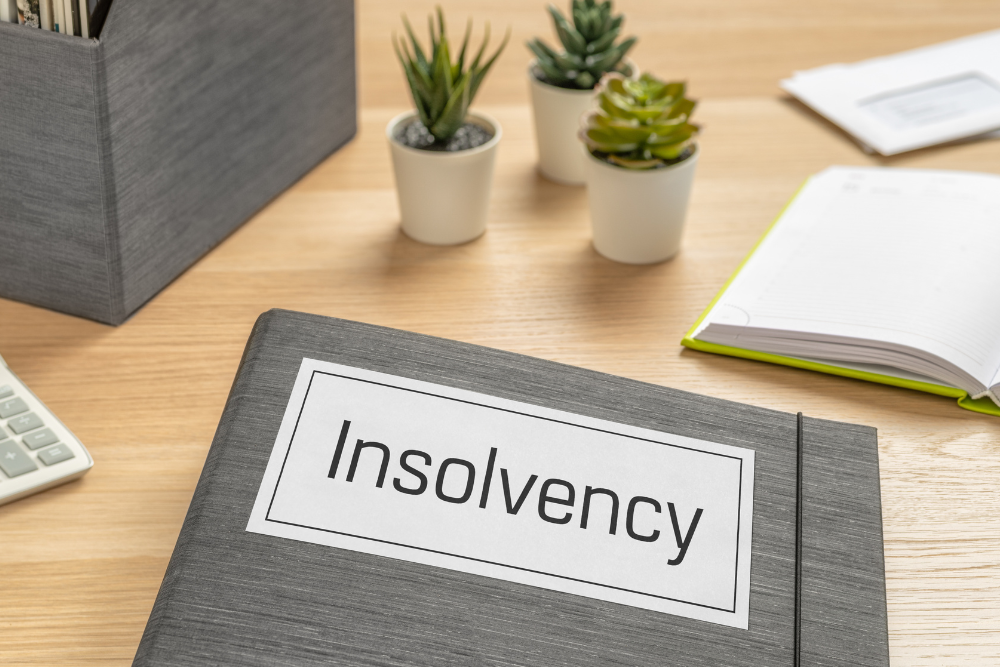The 7-Second Trick For Insolvency Practitioner
The 7-Second Trick For Insolvency Practitioner
Blog Article
The Basic Principles Of Insolvency Practitioner
Table of ContentsTop Guidelines Of Insolvency PractitionerInsolvency Practitioner Things To Know Before You BuyThe smart Trick of Insolvency Practitioner That Nobody is DiscussingThe Of Insolvency PractitionerSome Known Facts About Insolvency Practitioner.
Whether you require to make use of an insolvency professional (IP) to liquidate your company depends upon different elements. While engaging a bankruptcy specialist for all forms of liquidation is not a legal need, doing so can typically enhance the process and make sure conformity with lawful needs. Liquidating a company is an essential decision that comes with substantial repercussions.
It is a treatment used when a company does not have any financial institutions, or all of their financial institutions can be paid off completely with statutory interest. Comprehending the different kinds of insolvency processes can aid you determine the most effective training course of action for your business's liquidation or various other formal bankruptcy procedures itself.
This is compulsory in order to adhere to lawful needs - Insolvency Practitioner. This is because IPs have the needed credentials and experience to make sure that the liquidation process is carried out according to all suitable legislations and guidelines. By engaging a qualified insolvency practitioner, you can have comfort understanding that your business's liquidation procedure will certainly be dealt with properly and in compliance with the pertinent lawful requirements
3 Easy Facts About Insolvency Practitioner Explained
The insolvency practitioner is assigned as a liquidator and is accountable for handling the firm and liquidator's financial obligations exceptional obligations and properties. This process includes liquidating the company's assets and distributing the proceeds to creditors. Upon conclusion of the procedure, the firm is removed from the register at Companies Home.
Failing to do so can lead to individual obligation for the firm or director for the lender's financial debts. Volunteer liquidation, that includes Creditors' Volunteer Liquidation (CVL) and Participants' Voluntary Liquidation (MVL), is launched by the business's directors and shareholders when they can no much longer pay their debts. In a CVL, the bankruptcy expert is designated as the liquidator, responsible for managing business financial obligations and all company properties.

Some Of Insolvency Practitioner
By evaluating the experience and experience of possible bankruptcy specialists, you can make certain that you choose a specialist that has the required credentials to manage your company's liquidation process efficiently. While bankruptcy practitioner-led liquidation is typically the most proper training course of activity for business facing insolvency, there are different approaches to take into consideration, such as striking off and partial liquidation.
It's important to assess all offered options before picking the next ideal remedy or program of action for your service. Striking off firms' registers is an extra uncomplicated and affordable means to close inactive or little business without any financial obligations or properties. To strike off a company, its name is eliminated from the Business House register by submitting type DS01.
Prior to opting for striking off, it's essential to weigh the benefits and disadvantages of this strategy and think about whether it's the right selection for your organization. Partial liquidation is one more alternative to bankruptcy practitioner-led liquidation, in which a firm sells off specific possessions and obligations while remaining to run with the staying properties and responsibilities.
An Insolvency Specialist will be able to recommend you of the very best training course of activity to take and ensure that everything runs efficiently. However, it is not possible to sell off a company without a liquidator. Selecting an authorized insolvency expert is required for the procedure of voluntary liquidation to start.
Not known Incorrect Statements About Insolvency Practitioner
It is possible to close and liquidate your business without making use of a liquidator, given your company is solvent and you fulfill the qualification requirements to liquify or liquidate it. If your business is insolvent, you may be needed to use a liquidator and begin formal bankruptcy treatments. Below are a few other helpful posts regarding business liquidation in the UK:.
Being in a placement where you're incapable to pay your business's lenders is very demanding. In an attempt to prevent boosting the level of financial debt, lots of companies attempt to bargain straight with their creditors and consent to an informal plan. If the financial debt is quite tiny and owed to one financial institution, and the lender is being participating, participating in an informal debt setup is most likely Resources the most effective service, as opposed to searching the internet for 'an insolvency specialist near me'.
On the other hand, if there are numerous financial institutions and the degree of debt is large, creditors may not be so prepared or cooperative. In order to prevent liquidation or insolvency, it is better to work with an insolvency practitioner to prepare formal proposals and bargain with creditors in your place.
The 3-Minute Rule for Insolvency Practitioner
Whilst it is a way to take care of debt, there are substantial risks involved with this kind of financial obligation setup - Insolvency Practitioner. If a creditor agrees to participate in a casual plan (IA) wherein the debtor has agreed to make normal, if lower, find out here now payments to settle the debt, it's essential to stay with the arrangement

The creditor is within their legal rights to back out of the arrangement and request the courts for your company to be sold off at any time. An official arrangement that has been proposed by a bankruptcy professional in your place, and concurred by a creditor, offers a much safer option.
Report this page